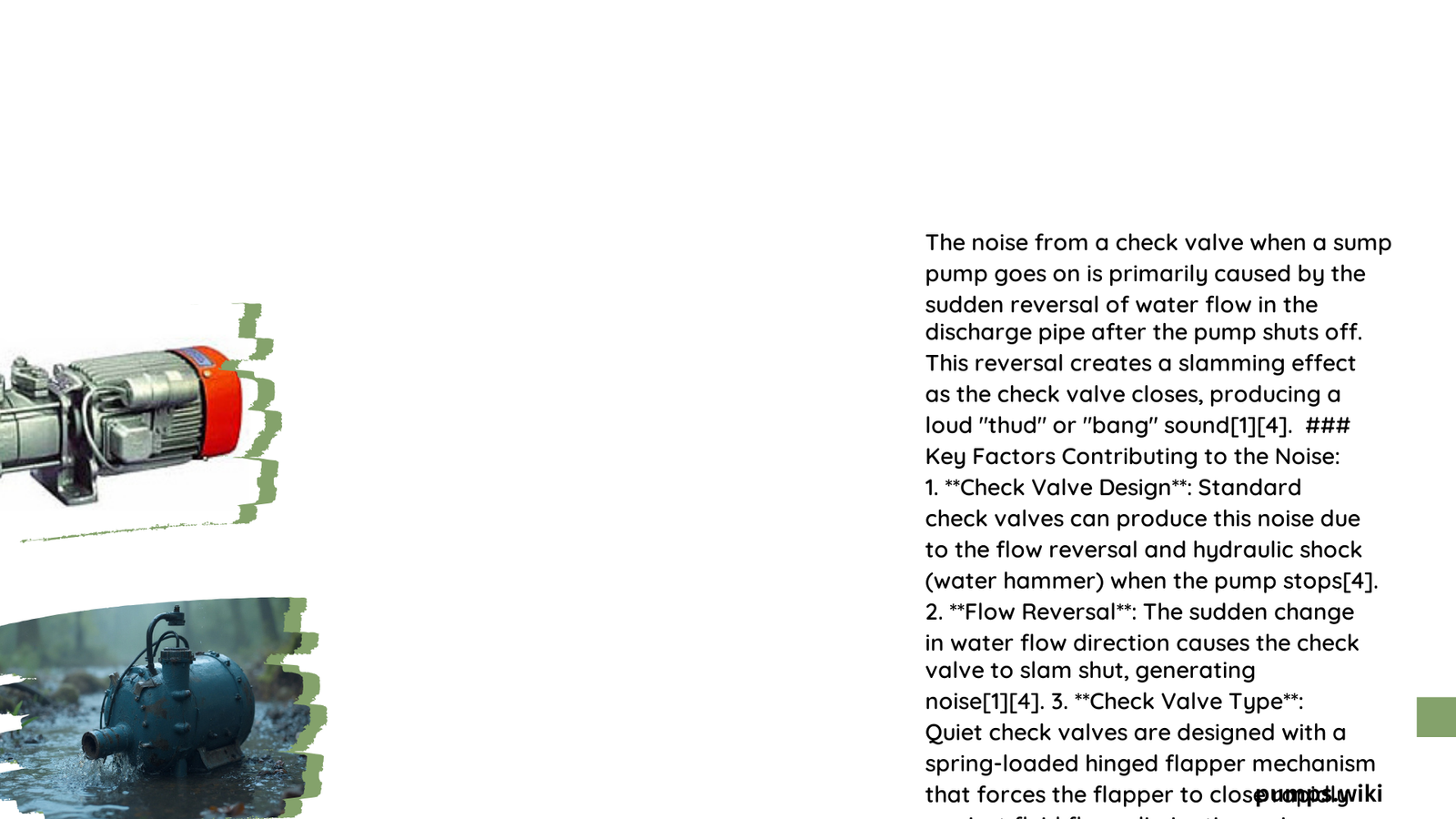Sump pump check valve noise can be a frustrating household issue that disrupts peace and indicates potential system problems. When your sump pump activates, the sudden water pressure changes and valve closure can create loud, startling sounds ranging from sharp thuds to persistent banging. These noises often stem from hydraulic shock, valve design, and improper installation, signaling the need for professional assessment and potential component replacement.
What Causes Check Valve Noise in Sump Pumps?
Why Do Sump Pump Check Valves Create Loud Noises?
Sump pump check valve noise primarily results from several interconnected mechanical factors:
- Hydraulic Shock Mechanism
- Water reversal creates sudden pressure changes
- Rapid valve closure generates intense sound waves
-
Mechanical impact produces distinctive “thudding” noise
-
Valve Design Characteristics
- Standard check valves have less controlled closure mechanisms
- Angled seat design allows partial flow reversal
- Limited travel distance increases potential for noise generation
What Are the Primary Sound Generation Factors?
| Factor | Impact Level | Noise Potential |
|---|---|---|
| Water Pressure | High | Significant |
| Valve Material | Medium | Moderate |
| Installation Angle | High | Critical |
| Pipe Mounting | Medium | Considerable |
How Can You Reduce Sump Pump Check Valve Noise?

Practical Noise Reduction Strategies
Homeowners can implement several effective techniques to minimize disruptive sounds:
- Install Specialized Quiet Check Valves
- Spring-loaded hinged flapper design
- Approximately $25 replacement cost
-
Significantly reduces hydraulic shock
-
Optimize Valve Mounting
- Position at 45-degree angle
- Minimize sudden pressure reversals
-
Reduce mechanical impact intensity
-
Sound Dampening Techniques
- Apply foam padding around discharge pipes
- Prevent direct structural contact
- Use vibration-absorbing materials
What Professional Solutions Exist?
Professional plumbers recommend comprehensive approaches:
- Comprehensive system inspection
- Precise valve alignment
- Advanced sound mitigation techniques
- Regular maintenance schedules
When Should You Replace Your Check Valve?
Signs of Check Valve Failure
Recognizing potential issues helps prevent long-term damage:
- Persistent loud banging noises
- Visible valve damage
- Inconsistent pump performance
- Water leakage around valve connections
Technical Insights into Hydraulic Shock
Understanding Mechanical Dynamics
Hydraulic shock occurs when:
– Pump suddenly stops
– Water momentum continues
– Valve closes abruptly
– Pressure waves generate sound
Maintenance Recommendations
Proactive Care Strategies
- Annual professional inspection
- Clean discharge pipes
- Check valve alignment
- Monitor system performance
- Replace components preventatively
Cost-Effective Solutions
Budget-Friendly Noise Reduction
- Quiet check valve: $25-$50
- DIY sound dampening: $10-$20
- Professional consultation: $100-$250
Conclusion
Addressing sump pump check valve noise requires understanding mechanical principles, implementing targeted solutions, and maintaining regular system care. By recognizing noise generation mechanisms and applying appropriate techniques, homeowners can significantly reduce disruptive sounds and protect their drainage systems.
